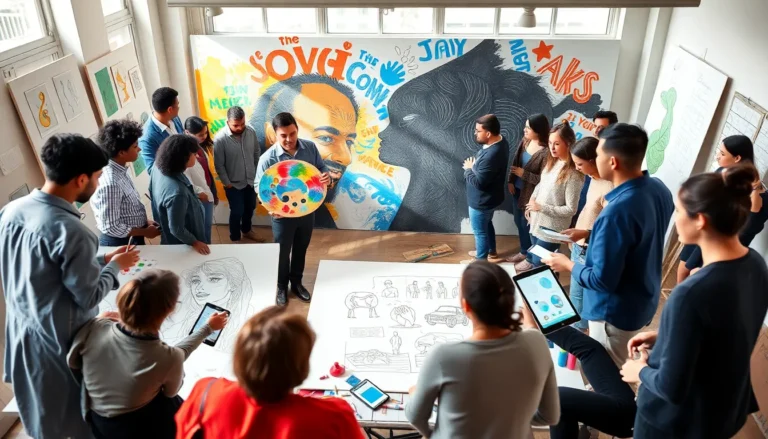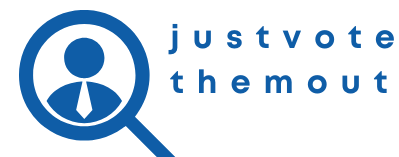Navigating the wild world of career development can feel like trying to solve a Rubik’s Cube while riding a unicycle. With so many theories out there, it’s easy to get dizzy. But fear not! Career development theories are here to save the day, offering insights that can turn confusion into clarity.
Table of Contents
ToggleOverview of Career Development Theories
Career development theories provide frameworks to understand how individuals select and shape their career paths. Various theories focus on different aspects, from personality alignment to external influences.
Trait and Factor Theory emphasizes matching individual traits with job requirements. This approach identifies personal strengths and interests, guiding career choices. Holland’s Six Types of Personality and Work Environment expands on this by categorizing people and work environments into six types and suggesting that satisfaction comes from aligning these types.
Developmental theories explore how careers evolve over a lifetime. Super’s Life-Span, Life-Space Theory highlights that career choices are influenced by various life roles and experiences. It acknowledges that these choices change with age and life stage.
Social Cognitive Career Theory focuses on the interplay between personal attributes, environmental factors, and behavioral choices. This theory suggests that self-efficacy and outcome expectations drive career decision-making.
Situational and contextual factors also play critical roles. The Developmental Contextual Model examines how life experiences and social factors affect career development. This model reflects the dynamic interaction between the individual and their environment.
Furthermore, the Chaos Theory of Careers introduces randomness and uncertainty in career paths. It posits that non-linear experiences contribute to career development, challenging traditional linear models.
Exploring these theories equips individuals with diverse strategies for understanding their career journeys. Each theory presents unique insights, offering tools to navigate complex career decisions effectively.
Key Theories in Career Development

Numerous theories provide insights into the complexities of career development. Each theory contributes unique perspectives that help individuals navigate their career paths.
Holland’s Theory of Career Choice
Holland’s Theory categorizes individuals into six types based on their personality and work environment. These types include Realistic, Investigative, Artistic, Social, Enterprising, and Conventional. Compatibility between an individual’s type and their job environment increases job satisfaction and productivity. Research shows that when personal traits align with work conditions, individuals are more likely to thrive in their careers. Overall, this theory emphasizes the significance of self-awareness in career decision-making.
Super’s Life-Span Theory
Super’s Life-Span Theory examines career development as a lifelong process, emphasizing the evolving nature of career choices. It introduces concepts such as life roles and self-concept, suggesting individuals transition through various stages: growth, exploration, establishment, maintenance, and decline. Each stage correlates with life experiences that shape career aspirations. Studies indicate that understanding one’s self-concept at different stages fosters better career planning and adaptability. This theory highlights the importance of viewing career development through a dynamic lens.
Krumboltz’s Social Learning Theory
Krumboltz’s Social Learning Theory focuses on the interplay between personal factors, environmental influences, and learning experiences in shaping career choices. He identifies four key influences: genetics, environment, learning experiences, and task approach skills. Opportunities to learn from agents such as family, peers, and educational settings significantly impact individuals’ career paths. Research indicates that enhancing self-efficacy through positive experiences promotes better decision-making and career outcomes. This theory underscores the role of learning in career development.
Application of Career Development Theories
Career development theories provide essential frameworks that impact counseling and education practices significantly.
Impact on Career Counseling
Career counseling practices thrive on the principles derived from development theories. Theories like Holland’s Six Types emphasize aligning personality with work environments, guiding counselors to assist clients in job matching. Super’s Life-Span Theory helps counselors understand clients’ stages of development; this awareness allows for tailored guidance during various career phases. Effective practices incorporate Social Cognitive Career Theory by enhancing clients’ self-efficacy and improving decision-making skills. Understanding how personal attributes and environmental factors interplay supports more personalized counseling techniques. Counselors equipped with these theories facilitate clients’ career exploration, resulting in satisfied and productive individuals.
Influence on Educational Practices
Educational settings benefit greatly from applied career development theories. Integration of Super’s Life-Span Theory into curricula encourages students to recognize the evolving nature of their career pathways. Programs designed around Holland’s Theory enable students to explore their personality types and their fit within potential careers. Emphasizing Social Learning Theory allows educators to foster learning experiences from peers and mentors. These strategies prepare students for real-world career challenges. Incorporating contextual influences helps educators understand how life experiences shape student decisions. Engaging educational practices informed by these theories equip students for future career success.
Critiques and Limitations of Career Development Theories
Career development theories face several critiques and limitations, impacting their effectiveness. Many theories rely heavily on static models that don’t account for the fluid nature of individual careers. Flexibility in career choices often contradicts structured pathways outlined in these theories.
Assessment methods used in some theories, like Holland’s, may oversimplify complex personal traits and preferences, overlooking unique individual experiences. An individual’s personality traits might not fit neatly into predefined categories, which can limit the applicability of these models in real-life scenarios. Furthermore, cultural contexts and socio-economic factors can significantly influence career development yet receive insufficient consideration in many frameworks.
Developmental theories like Super’s Life-Span Theory highlight stages of career growth but may not resonate with everyone’s experiences. Individuals frequently navigate career changes influenced by economic shifts or unexpected life events, challenging the linear progression suggested by these theories. Additionally, social and environmental variables often interact in unpredictable ways, affecting career outcomes and complicating the predictive power of these models.
Social Cognitive Career Theory emphasizes personal agency, yet it might downplay the constraints posed by systemic barriers such as discrimination or inequality. These factors can hinder individuals’ ability to make decisions aligned with their self-efficacy and outcome expectations.
Chaos Theory of Careers introduces the element of randomness, which some may argue undermines the applicability of traditional theories that promote predictable career paths. Traditional models may struggle to provide guidance in a rapidly evolving job market characterized by technological advancements and shifting economic landscapes.
Overall, while career development theories offer valuable insights and frameworks, recognizing their limitations enhances their application in real-world career counseling and education settings.
Career development theories provide essential frameworks that guide individuals in navigating their professional journeys. By understanding these theories, one can gain insights into personal strengths and preferences while recognizing the dynamic nature of career choices.
The application of these theories in counseling and education enhances career planning and decision-making. Although critiques highlight limitations, acknowledging these aspects fosters a more nuanced approach to career development.
Ultimately, leveraging the insights from these theories can empower individuals to shape fulfilling careers that align with their evolving aspirations and realities.



